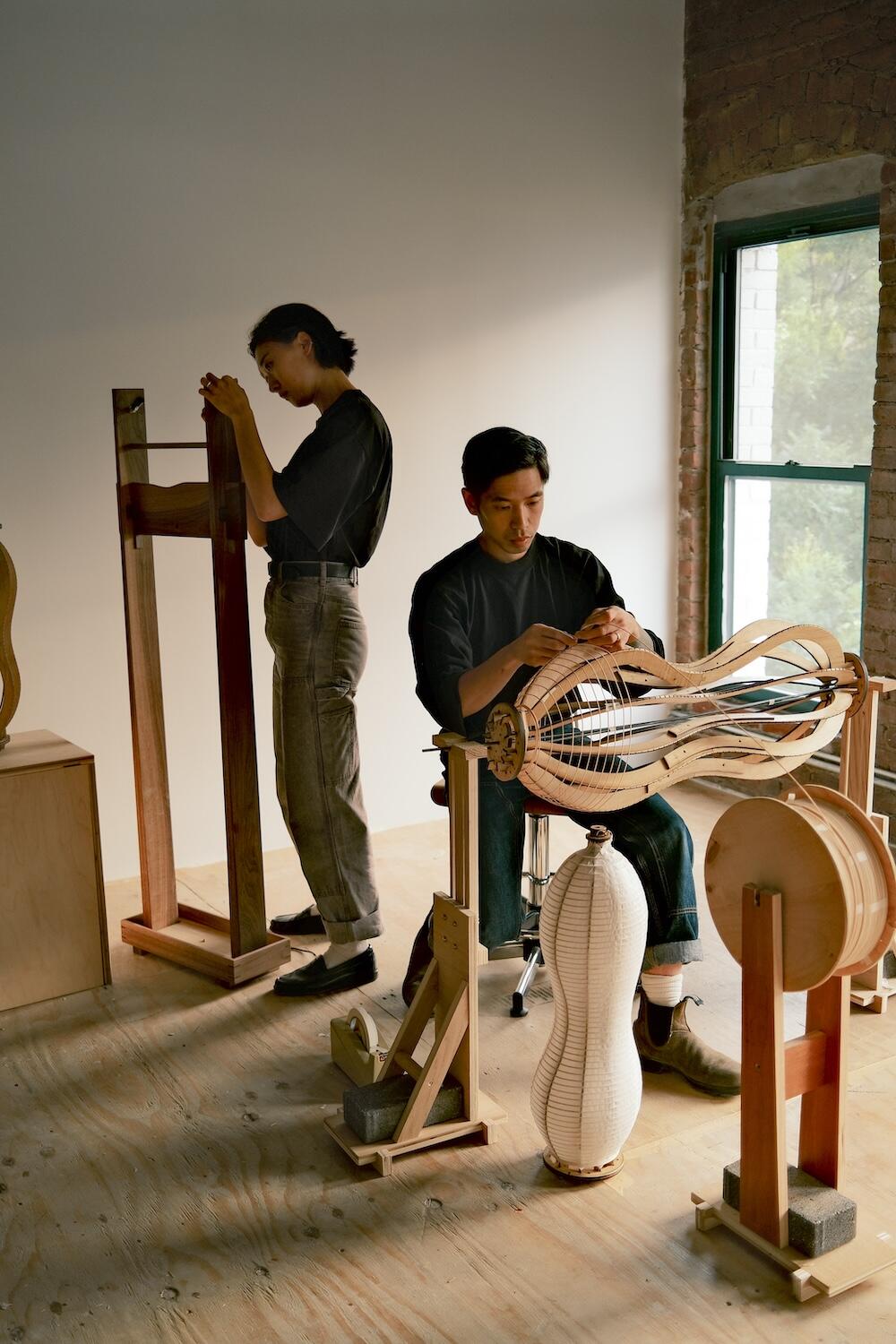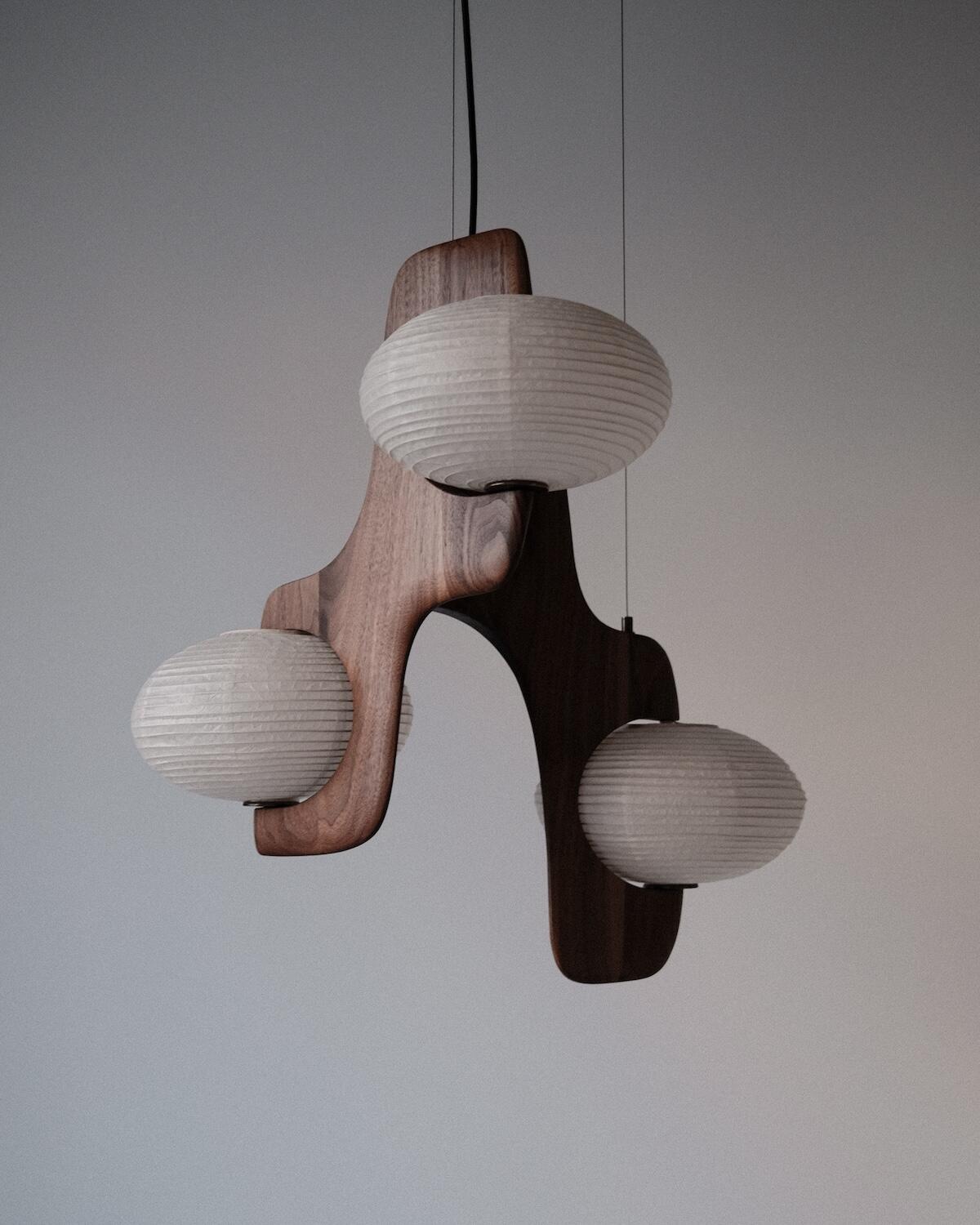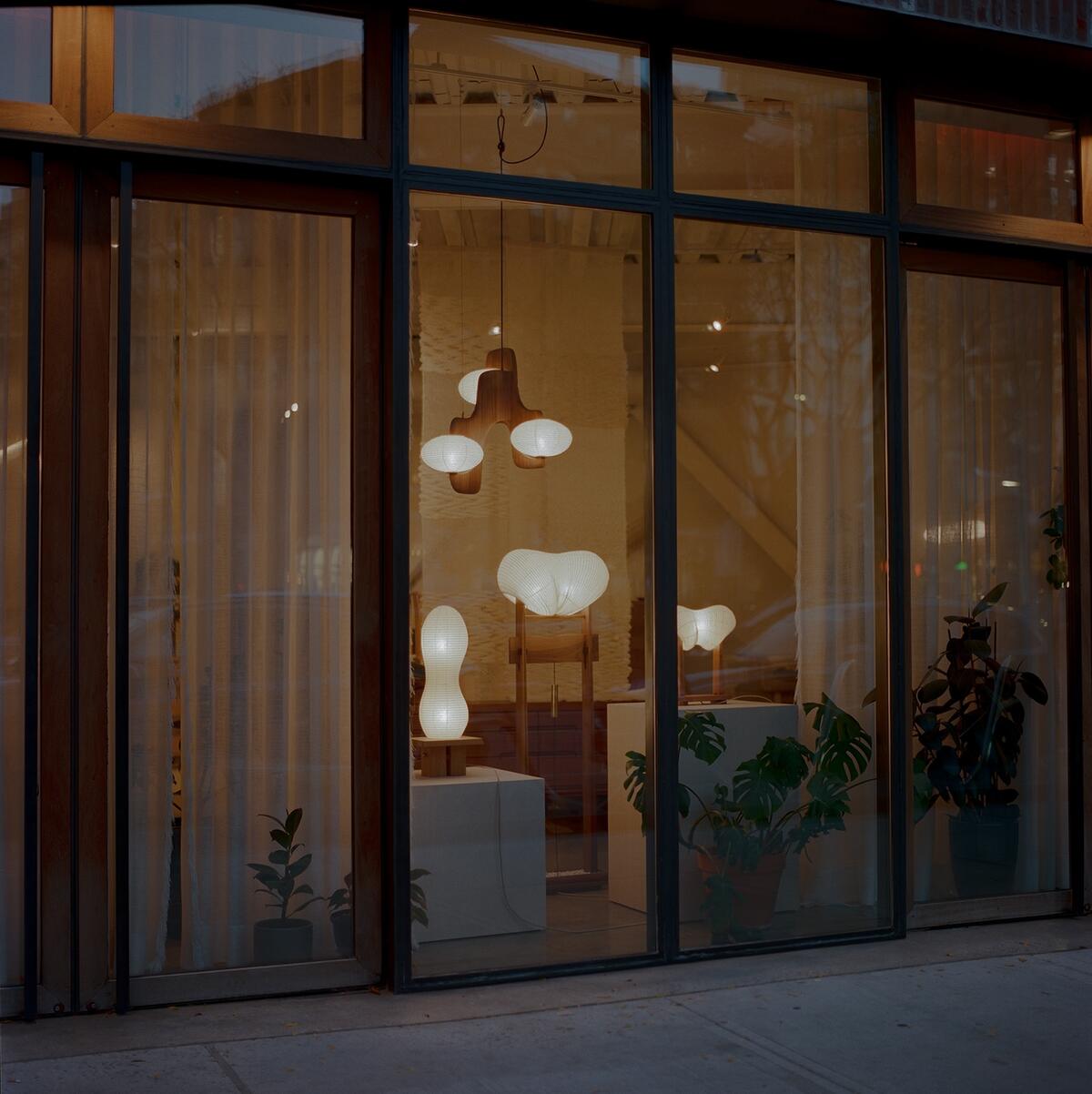Irisa and Aaron Kawabi want to make pieces that feel both timeworn and contemporary. The Brooklyn-based founders of Kawabi are on a mission to create modern light fixtures that feel deeply rooted in their ancestral past. “Because we’re descendants of immigrants who had to leave their histories and possessions behind, we didn’t grow up with any family heirlooms or antiques,” Aaron tells Business of Home. “So, in a way, part of our process is to create our own artifacts that remind us of an ancient home.”

While the pair grew up in the Northeastern United States—Irisa in Massachusetts and Aaron in New York—both have Chinese roots: Irisa’s family is originally from Yunnan and Shandong, while Aaron’s family hails from Hong Kong. The duo met on their first day of classes at the Parsons School of Design, where they both earned degrees in product design. “Growing up, we were artistically inclined and explored a lot of drawing and sculptural media, but when it came to choosing formal education, we decided on design as a way to merge our artistic interests with a practical profession,” says Irisa.
Though they never set out to be lighting designers, they began making paper lanterns using traditional Japanese hand tools and were hooked. “We were really drawn to the process as a way to connect to our spiritual and cultural roots,” explains Aaron. “We feel a cultural connection to many places in the East: the rituals, materials, and techniques are all conduits for us to access the past while in the present.”
Once a year, the partners—who are both decade-long Ashtanga yoga practitioners—travel to the Hudson Valley to stay at a Buddhist monastery for a silent meditation retreat, a practice that helps guide their creative work and reminds them to seek out the beauty in simplicity. “We trust our intuition and what our senses experience,” says Aaron. “For us, production is craft, and craft is a form of meditation; a way to exist with objects and feel closer to nature.”

All of the couple’s minimalist designs are imagined in the context of their own home, and the result is functional lights imbued with meaning. “Even before a sketch, our designs all begin with a sense of belonging and familiarity,” explains Aaron. “Our lamps, for example, provide illumination, but they also serve as shrines and beacons for our home, because like us, they are migrants from another place, another origin.”
Kawabi’s first official collection, Souvenir, supplies a superlative case in point. Inspired by a $2 lamp they found at a gift shop in San Francisco’s Chinatown, the pair forged the line—which features a sconce, floor lamp and table lamp punctuated by sinuous, pleated paper shades—from solid woods and kozo paper using centuries-old East Asian reed binding techniques. “The series is heavily influenced by Japanese chōchins, a close cousin to Chinese paper lanterns used in festivals, where the lanterns are regarded as literal gateways for souls and spirits,” says Aaron.

The brand officially launched in September 2024 at the Collectible fair in New York, and by November, had joined Colony’s esteemed roster of independent designers. Along with the aforementioned Souvenir collection, current offerings include the peanut-shaped Legume lamp, which pays homage to ancient feasting rituals, and a pendant that evokes a cascading bonsai. “Aaron has several kengai-style trees in his personal bonsai collection at home,” says Irisa. “The style is identified by its dynamic composition, which dramatically changes from every angle, and that aesthetic experience is what influenced the design of the pendant.”
Currently hard at work on a selection of pieces for Colony’s annual show at New York Design Week in May, the pair hopes to release a line of small, floating lights in the near future. “To us, lighting invites us to the origin of a place and to the present moment, as a sensory and spiritual experience of sorts,” says Irisa. “They illuminate dark spaces, drawing a visual boundary between what’s seen and what’s hidden, inviting us to come closer toward a central gathering place.”
For more information on Irisa and Aaron Kawabi, check out Kawabi’s website or Instagram.




























